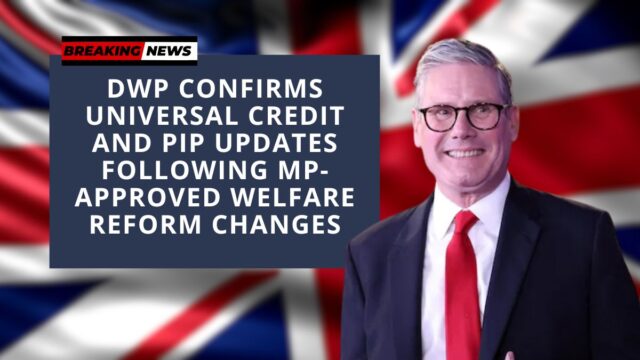On July 1, 2025, Members of Parliament voted in favor of advancing the Government’s Universal Credit and Personal Independence Payment (PIP) Bill to the next legislative stage. However, this progression came only after the Government agreed to major concessions to secure enough support, particularly within the Labour Party.
Labour Opposition and Party Rebellion Softened
Initially, 126 Labour backbench MPs indicated they would vote against the bill, a move that could have effectively blocked its progress. But when the vote was cast, only 49 MPs opposed the legislation. To reduce the rebellion, the Government was forced to compromise on several key points.
Key Concessions to Secure Support
Work and Pensions Secretary Liz Kendall previously announced a series of changes to ease tensions and win over dissenting MPs. These concessions included:
- Delayed implementation of changes to PIP eligibility, now set to begin in November 2026.
- Protection of income in real terms for those receiving the health element of Universal Credit, as well as new claimants with severe health conditions.
- A comprehensive review of the PIP assessment process, led by Disabilities Minister Sir Stephen Timms, developed in collaboration with disabled individuals.
Additional Delay to PIP Reforms
During the parliamentary debate, Sir Stephen Timms introduced a further compromise: the postponement of PIP eligibility changes until his review is completed. This move adds more uncertainty and delays to the Government’s original reform agenda.
Universal Credit Changes Still on Track
While PIP reforms are on hold, the Government still intends to implement changes to Universal Credit. From April 2026, the standard allowance will be increased, but the health element will be halved for most new claimants.
Impact on Fiscal Strategy
These welfare compromises pose a financial challenge for Chancellor Rachel Reeves, who had planned to reduce spending through welfare reform. The Resolution Foundation has warned that, due to these changes, there may be no net fiscal savings from welfare reform by 2029/30, a year that is central to the Chancellor’s budget targets.
Next Steps for the Bill
The Government has promised to amend the legislation and remove PIP reform clauses before the Bill returns to the House of Commons. If approved by both MPs and members of the House of Lords, the bill will become law.
Lingering Questions and Political Implications
Despite legislative progress, major political and policy questions remain. Chancellor Reeves must resolve the fiscal shortfall, while the Prime Minister faces a test in managing internal party unity. Additionally, the broader vision for welfare reform remains unclear, especially as Sir Stephen’s PIP review may stir further controversy.
Conclusion
While the Government’s welfare reform bill is moving forward, the journey has been complicated by internal party disagreements and concessions that significantly alter its scope. With Universal Credit changes proceeding and PIP reforms delayed, the Government faces fresh budget pressures and political challenges in the months ahead.
FAQs
1. What are the main changes to Universal Credit in the new bill?
The reform will increase the standard allowance but reduce the health element by 50% for most new claimants starting April 2026.
2. When will the changes to Personal Independence Payment (PIP) take effect?
The PIP eligibility changes are now delayed until after a formal review is completed, with no confirmed date for implementation.
3. Who is conducting the review of the PIP assessment?
Sir Stephen Timms, the Disabilities Minister, will lead the PIP review in collaboration with disabled individuals to ensure a more inclusive process.
4. How will these changes impact current PIP claimants?
Current recipients of PIP will not be affected by the new rules if they began claiming before November 2026.
5. Will the welfare reforms still produce budget savings?
According to the Resolution Foundation, the revised reforms are unlikely to generate net savings by 2029/30, affecting the Government’s fiscal plans.

